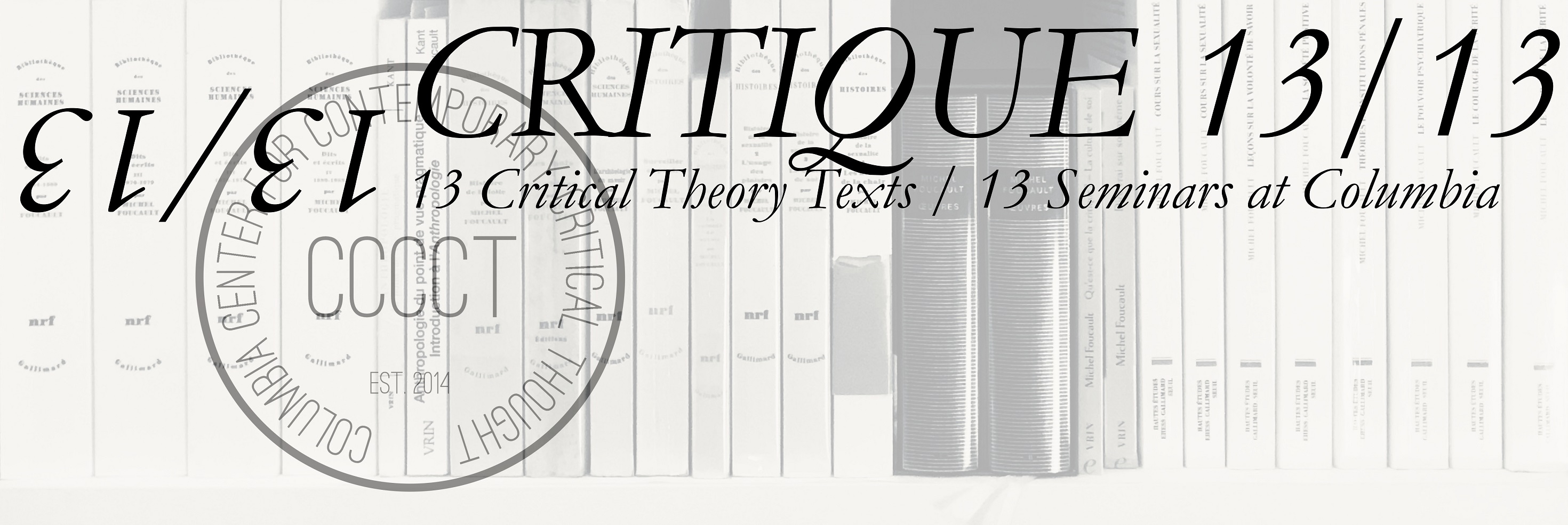Author: Bernard Harcourt
Les Inrockuptibles | 15 janvier 2020
Gayatri Chakravorty Spivak
Gayatri Chakravorty Spivak is University Professor and a founding member of the Institute for Comparative Literature and Society. Her fields of study span from the 19th- and 20th-century literature; politics of culture; feminism; Marx and Derrida; to globalization. Her most… Continue Reading
Bernard E. Harcourt | Introduction to Critique 11/13 on Edward Said’s Orientalism
By Bernard E. Harcourt “Foucault’s greatest intellectual contribution is to an understanding of how the appetite for or will to exercise dominant control in society and history has also discovered a way to clothe, disguise, rarefy, and wrap itself… Continue Reading
Bernard E. Harcourt | Concluding Thoughts on Sartre’s Critique of Dialectical Reason
By Bernard E. Harcourt In his discussion of Sartre’ s Critique of Dialectical Reason in Marxism and the Existentialists (New York: Harper & Row, 1969), Raymond Aron draws our attention to a passage, at the end of a note on… Continue Reading
COVID-19 | Critique 13/13 Suspended
Because of the COVID-19 pandemic, Critique 13/13 was suspended as of March 2020. For more information from Columbia University, click here.
La Vie | 18 février 2020
Critique 11/13 | READINGS
Primary Readings Edward Said, Orientalism (New York: Vintage Books, 1978) Edward Said, After the Last Sky: Palestinian Lives (New York: Columbia University Press, 1999) Homi K. Bhabha, “Foreword: Framing Fanon,” vii-xli, in Frantz Fanon, The Wretched of the Earth (New York: Grove Press, 2004) Additional Readings Homi… Continue Reading
Re. Thibault Le Texier | By Bernard E. Harcourt | February 17, 2020, revised 07/20/2021
By Bernard E. Harcourt — revised July 20, 2021 “The book’s two editors were able to read an advanced copy of this book review and did not find anything to object to.” — Thibault Le Texier, advance copy of book… Continue Reading
Bernard E. Harcourt | Rethinking Arendtian Categories
By Bernard E. Harcourt Seyla Benhabib writes, in the first sentence of her brilliant essay, that we are here “to read iconic texts critically”—and she asks what exactly it means to read texts critically. I wanted to spend a moment… Continue Reading
